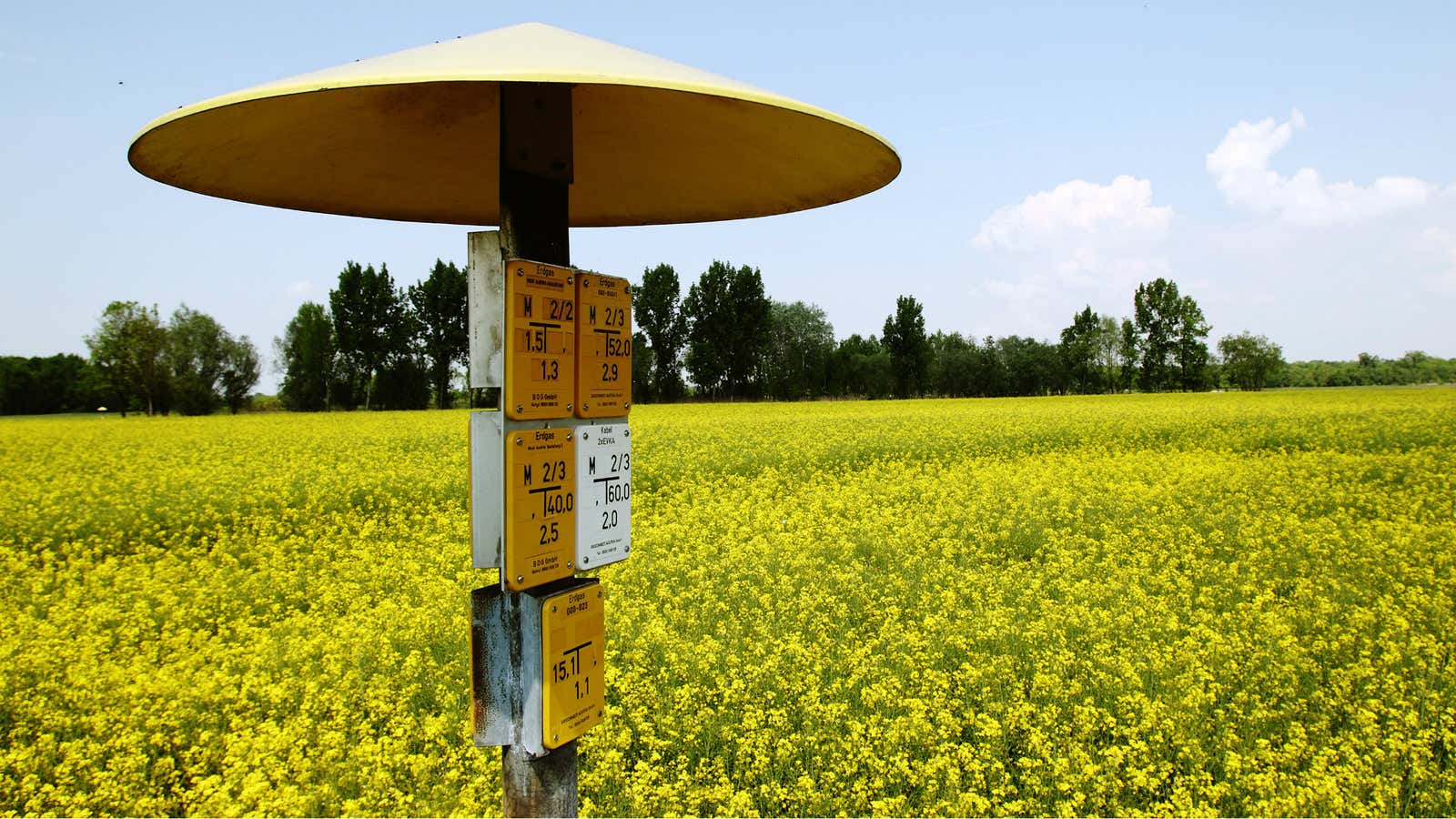Moscow’s destabilization of Ukraine is hurting the Russian state-controlled energy giant Gazprom, and disrupting Russian president Vladimir Putin’s gas-led strategic plans in Europe.
Gazprom’s share price has surged by 6% over the last week, but rather than confidence in the company’s future, the spike seems to suggest a gentle correction following an across-the-board plunge in Russian shares since Putin’s invasion of Ukraine in February. In a new report, Gazprom said its profits plunged by 38% in the first half of the year and that it will produce 5% less gas this year than last. Even with the share price surge, Gazprom shares trade at 2.7 times estimated earnings, the lowest among its major emerging market energy peers.
The main reason for the plummet in profits is the Ukraine crisis. Gazprom stopped deliveries of gas to Ukraine in June over a price-and-debt dispute—Ukraine says that Gazprom charges too much and has saddled it with invalid debts, while Gazprom says it has demanded only what it is due. Meanwhile, prior to the cutoff, Ukraine stockpiled gas supplies, buying 44% more of the fuel than it did last year from Gazprom and putting it into storage tanks for apparent use should the row persist into the winter. The unpaid bill for all that gas is $5.3 billion, says Gazprom, which accounts for most of the first-half profit plunge.
A trend against high prices in Europe—by far Gazprom’s largest customer base—also vexes the company. Europeans had already sought lower prices from Gazprom prior to the Ukraine invasion, but the demands have increased in the current environment. Italy’s Edison, a unit of Electricite de France, is the latest to seek a lower gas bill.
But the biggest setback for Putin is on the larger strategic playing board. About half of the company’s deliveries to Europe traverse Ukraine, and Putin’s attempt to circumnavigate the country has been thwarted, at least for now.
Putin has championed South Stream, a 1,520-mile-long natural gas pipeline that would go from Russia to Bulgaria, bypassing Ukraine and traversing the Black Sea. South Stream had seemed on track to deliver first gas by the end of next year, but the EU appears to have suspended the pipeline’s construction as a punishment for the destabilization of Ukraine.
In a note this week to clients, Eurasia Group said the delay could last years. That means no imminent end to Gazprom’s Ukraine headache.
